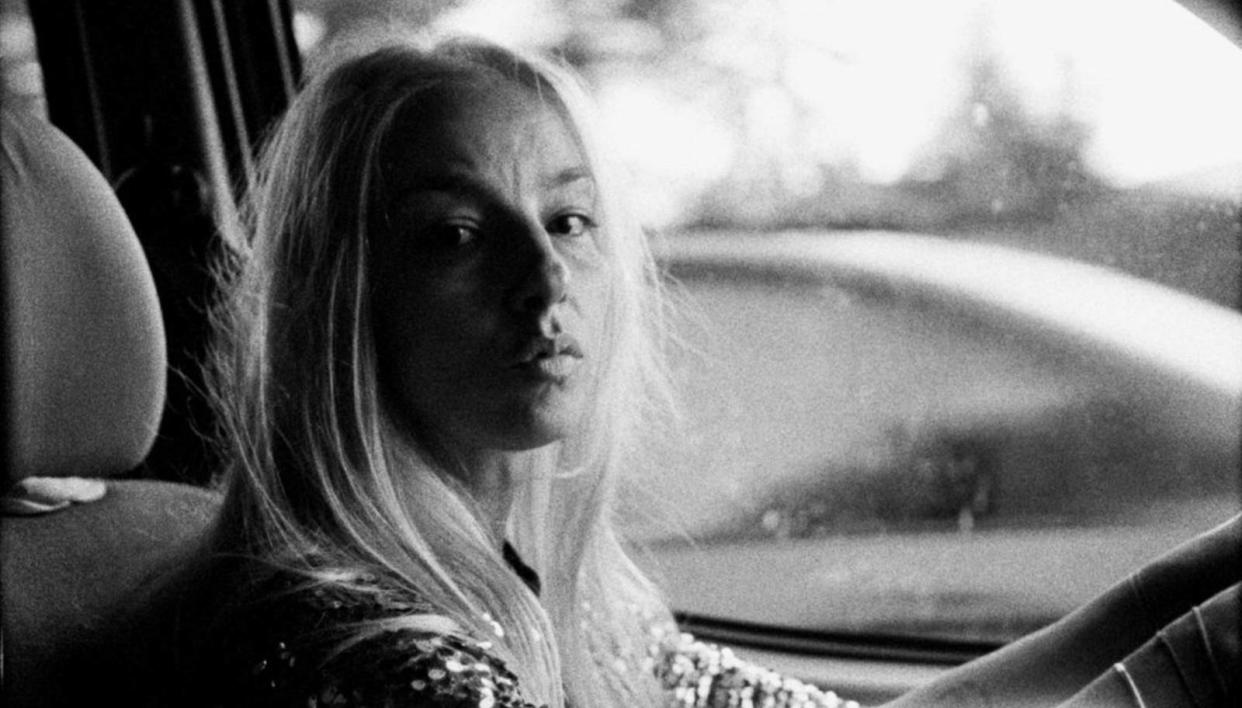‘Do Not Expect Too Much from the End of the World’ Review: Radu Jude’s Marvelous Satire Skewers a Range of Modern Absurdities

- Oops!Something went wrong.Please try again later.

Editor’s Note: This review originally premiered at the 2024 Locarno Film Festival. MUBI will release it in theaters on March 22, 2024.
It takes flair to concoct visual-gag-after-visual-gag within episodic riffs on the raw deals suffered by the gig-economy-classes in modern day Bucharest. Radu Jude blends absurdist humor with keen social integrity, like a sharper Romanian riposte to Ruben Östlund, as the trials of a dangerously overworked production assistant named Ange (Ilinca Manolache, sensational) builds to a 40-minute final shot in which tragicomedy is heaped upon tragicomedy to unbearably brilliant effect.
More from IndieWire
Observing a nation’s shortcomings is not typically this fun. Yet — unlike latter-day miserabilist works by the likes of Ken Loach — Jude’s “Do Not Expect Too Much from the End of the World” and its barbs stick entirely because Jude trusts his audience to appreciate tonal scope.
Ange also trusts her audience to correctly interpret a character she performs to a growing online following (“I’m like Charlie Hebdo, suckers!”). In order to break up the monotony of 16-hour workdays spent on the road as a dogsbody for an international production company, she uses her front-facing camera and a filter to become “Bóbita,” a vulgar chap with oily black hair and a creepy earring, inclined to obsess over female anatomical parts in the mode of Andrew Tate. Part of the joy of observing Bóbita is Jude’s decision to have her apply the cheapest filter going; as such, her platinum ponytail bounces its feminine interference into the middle of rants about tits and ass.
Star Manolache is a punk presence from the moment she is introduced, naked and swearing at an alarm clock, bee-bee-beeping at the obscene time of 5:50 AM. She extends a hand to reach for a phone nestled beside a glass of red wine and a well-thumbed Proust. She dresses, still swearing, pulling on the sequinned dress that will get her through another long day, and films her first Bóbita video calling into question the virility of the local men. The irony, considering that she fell asleep at the wheel yesterday, is that Ange is scouting potential candidates for a “safety at work” video, visiting four permanently disabled individuals in search of the right “energy.” (One facially disfigured man is ruled out by a producer for being “Too much Tod Browning’s ‘Freaks.'”)
Jude hitches the first part of the film to Ange’s wagon, as she navigates aggressive motorists (colorful insults turn the air blue), fields calls from a boss who insists that, rather than sleep, she needs a more positive attitude, and ferries her mother to the cemetery containing her parents’ mortal remains, where — due to a clerical error — a housing development is advancing and bodies need to be exhumed and reburied. Each scene is mounted with a casual observational eye, so that the extremity of what is being portrayed becomes apparent only by increments. Jude is not interested in gnashing his teeth and wailing at the heavens, but in underlining our human threshold for accepting bizarre twists and turns with an endearing gameness of spirit.
There are no arch-villains, but plenty of morons with too much power, and Jude’s script is ripe with delicious character notes. This is a work by someone totally secure in their thinking, and able to afford punchlines to all kinds of ghoulish pen-pushers without fear of confusing the film’s ideological clarity.
In one of many stand-out scenes, Ange pays a visit to the man in charge of the housing development displacing human bodies. He says that although he understands her distress “theologically speaking, we’re good” as they have “elite priests” helping out. Perhaps moved by Ange’s feminine charms, he confides that he has a copy of a book called “CAPITAL” by Karl Goldsmith that he likes to position prominently to spook visiting capitalists into thinking it is Marx. This character, never seen again, experiences so much glee at this prank as to be unforgettable.
There are many such incidentally hilarious moments dotted across the film, as the indomitable Ange carries out duties that require meeting a cross-section of people from around the food chain. Her presence erases the word “if” from Rudyard Kipling’s totemic poem, specifically this line: “If you can talk with crowds and keep your virtue, or walk with Kings — nor lose the common touch.” Her capacity to hold her own, using the currency of ribald jokes and wide cultural knowledge, leads to an excellent interaction in a cameo by a German director, but also means that she can enter the homes of people who have been severely injured at work and draw out these distinctive characters.
The texture of “Do Not Expect Too Much from the End of the World,” and the way that it plays with image and image construction, adds a layer of commentary and detachment to the events that it depicts. In the film’s pithy press notes, Jude writes, “It is a film which, in its structure and mise-en-scene, is even more amateurish than my last films.” Bóbita videos aside (and there are an awful lot of these, sometimes overheard by civilizations frozen in a listening stance as Bóbita rhapsodizes on the theme of pussy), the film, predominantly in black and white, sometimes switches to color to portray a mysterious woman driving a taxi and fending off presuming suitors as romantic music swells.
On top of this, Jude situates corporate power-broking within the glitchy world of Zoom meetings, and it is simply fabulous when German amazon, Nina Hoss, is introduced as a giant face on a screen in a meeting. She is Doris Goethe (great-great-great granddaughter of the writer). A conversation that she and Ange have during a night-time drive comes as close as this loose and good-humored film gets to a summit on the themes of corruption, exploitation, and personal evasiveness.
During this drive, Jude inserts another type of footage — a documentary montage of makeshift graves for the motorists who perished on “Death Road,” a terribly designed 472 km stretch in Romania’s south-eastern city of Buzau. This montage runs for longer than the previous rhythms of the film would suggest, to the point that one wonders if Jude is going to show each of the 600 graves alluded to by Ange. Stark, quiet, and free from humorous spin, this memorial is striking like an oak towering over a playground, or a two-minute silence before a major sporting event.
This is, perhaps, a hint that the rhythm of the film is about to change. Part Two is the shoot for Ovidiu (Ovidiu Pîrsan), the lucky man selected to have the right energy for the “safety at work” video. We see this part exclusively through the camera trained on this woebegone man in a wheelchair, family staged around him with mournful elegance, as he is forced to repeatedly recount the details of how he was nearly brained by a rusty bar (visible in the background).
The shoot starts collapsing in on itself as it emerges that Ovidiu was the victim of corporate negligence and the filmmakers pressure him to change his story while chatting about the artistic inspirations behind this shoot, say, Charlie Chaplin and Georges Méliès. With the measured pace of a master, Jude feeds information, tension, and (of course) a Bóbita video into this tableaux, as the family at the center of it wrestle with what they’re selling for the 1,000 Euro day rate.
After all, Jude has spent Part One letting the audience know in a blitz of subtle — and not so subtle — ways that when people do not expect too much, to walk away from money like this is, indeed, the end of the world.
Grade: A-
“Do Not Expect Too Much from the End of the World” premiered at the 2023 Locarno Film Festival. MUBI will release it stateside.
Best of IndieWire
Sign up for Indiewire's Newsletter. For the latest news, follow us on Facebook, Twitter, and Instagram.

